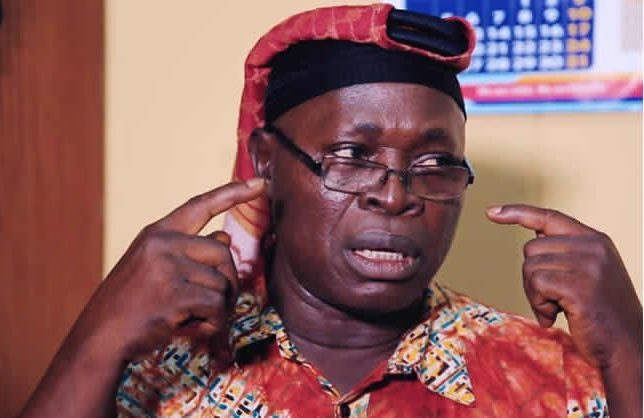COMMUNIQUE ISSUED AT THE END OF THE CIVIL LIBERTIES ORGANISATION (CLO) COLLOQUIUM ON FORCED EVICTIONS & DEMOLITIONS IN NIGERIA HELD ON THE 30TH DAY OF APRIL, 2013 AT THE NATIONAL SECRETARIAT.
BACKGROUND:
The Civil Liberties Organisation (CLO) organized a one day colloquium on the “ Forced Evictions and Demolitions in Nigeria” under the civilian dispensation. The colloquium, a monthly programme, was hosted at the national headquarters of the CLO on 13, Soji Adepegba close, Off Allen Avenue, Ikeja, Lagos state, on Tuesday, April 30, 2013. The programme which drew stakeholders from both the civil society, professional associations, the media and government circles was chaired by Comrade Nonso Uchegbu, the Director of Research, Centre for Constitutionalism & Demilitarisation, Ogba, Lagos state, while Barrs. Emma Nwaghadoh and Megan Chapman of the Socio & Economic Rights Action Centre (SERAC), Isheri, Lagos state, were lead speakers. Other panelists included a representative of the Ministry of Physical Planning & Urban Development, Lagos state, Barrs Wale Ogunade of Voters’ Awareness Initiative, Adetokunbo Mumumi of the Socio-Economic Rights & Accountability Project (SERAP), Emma Maduabuchi of the Daily Independent Newspapers, Peter Anosike of The Sun newspapers, Adesina Akinyemi of Federal Urban Poor (FEDUP) and representatives of the victim Badiya East community, Pastor Oladele Williams and Mrs Abiola Ogunyemi who pleaded with both the government of Lagos state and all people of good conscience to come to their aid.
Other Panelists were Chris Onyeka, Head, Campaigns & Programmes, CLO, Barr. Tony Okure, Head of Litigation of the CLO, Tunji Sekoni of TUC and Arthur Nwakanma, Head, Democracy & Governance of the CLO who was the Master of Ceremony. Ibuchukwu Ohabuenyi Ezike, CLO’s Executive Director, presented the opening speech in which he tasked the Panelists to come up with a solution to the “wickedness” as ‘’all it takes for evil men to take over the society and poison it,’’ was , ‘’for good men to stand aloof and do nothing.”
At the end of the one-day programme, the colloquium issued the following communiqué.
- That the criminal evictions and demolitions that characterized authoritarian military regimes in Nigeria worsened and continued through the civilian regime attained in May, 1999 under the General Olusegun Obasanjo regime. The colloquium noted that the history of the new evolution could be traced to the actions of Mallam Nasir El-rufai as the Minister of the Federal Capital Territory and that of other State Governments noted for their notoriety and impunity.
- That the process of eviction of people and communities from their natural habitat and willful demolition of their hard earned property by the state and its actors in a civilian dispensation in Nigeria is more lawless, wicked and therefore, inhuman than the shape it took during the military dictatorship.
- 3. That the manner in which citizens were evicted from their residences and their communities and property destroyed was the same in the democratic era as in the military rule and lacked absolute respect for the rule of law, due process and human rights.
- That in most cases, No notice in accordance with both national laws, international human rights instruments such as covenants, conventions and the likes were hugely disrespected and violated by the government at the centre, states and local governments where these gross infractions have occurred. The colloquium observed that the issuance of 7-day quit Notice to communities, the use of heavily armed policemen & soldiers, and bulldozers to pull down communities at the expiration of such illegal quit Notice like an army of occupation was similar in all cases and, therefore, condemnable.
- That government usually cited otiose environmental, physical planning and fighting of crimes or rescuing the people from dangers as its reasons for criminally seizing people’s lands but that the major reasons as have been discovered from evidences were primitive and selfish motivations.
- That the state actors have lacked human consciences in dealing with the issue of evictions and demolitions as not even an alternative arrangement is made to relocate the victims nor are food and other essential materials provided for the victims at their emergence camps.
- The Colloquium noted that over two million (2 M) Nigerians have been forcefully evicted between May, 1999 and December, 2007, nationwide while the worst hit places were FCT, Abuja, Lagos and Rivers states .
- The colloquium also agreed that the three basic needs of man from ages past have been food, clothing and housing and remarked that governments in Nigeria since 14 years ago have made minimal efforts to provide these essential needs for the citizens. Instead, government has created more crises, suffocations, difficulties and made life more unbearable for the people.
- And, lastly, it resolved to constitute a “SHELTER RIGHTS REFORM” that would begin to cause government to respect the rights of the citizens to Shelter and the laws that brought its actors to power in order to create a humane, just, equitable and fair Nigerian society.
Signed:
Comrade, Nonso Uchegbu, Ibuchukwu Ohabuenyi Ezike,
(Chairman of the Colloquium) (Executive Director, Civil Liberties Organisation)



